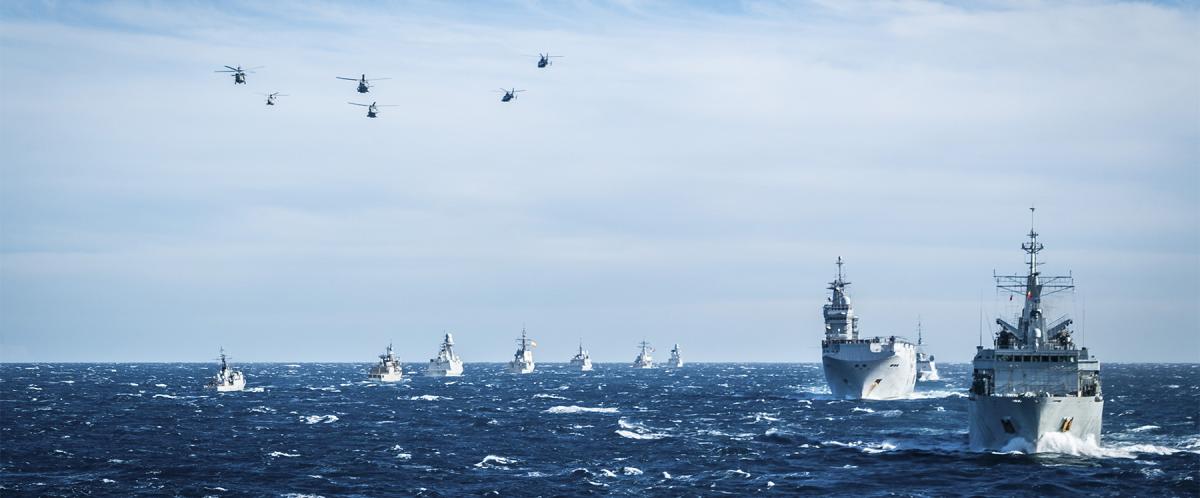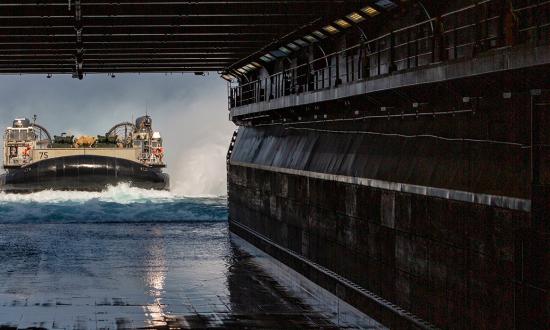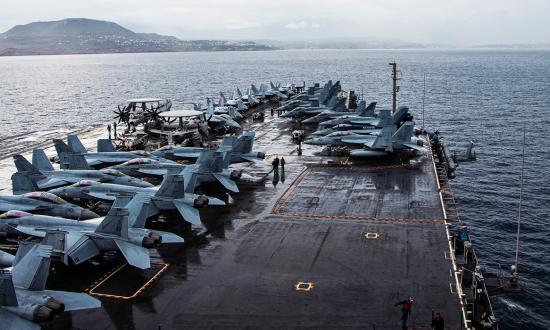Against the backdrop of the ongoing war in Ukraine, this month is our annual focus on international navies. A record 32 international navy chiefs accepted our invitation to describe their nations’ maritime security challenges. That invitation went out in late 2021, before Russia’s invasion, but several navy chiefs adjusted their responses accordingly—particularly those from the Black Sea and Baltic Sea regions. Rear Admiral Kiril Mihaylov, Commander of the Bulgarian Navy, sums it up: “Russia has never ceased projecting its influence . . . interfering in the domestic affairs of former Eastern Bloc countries. The escalation of hostile activities . . . culminated on 24 February with the . . . invasion of Ukraine, which confirmed our doubts that political means do not suffice for Russian leaders.” Well put, Admiral.
While the war in Europe has put the Indo-Pacific “below the fold” recently, retired Navy Captain Jim Fanell, our go-to expert on the Chinese Navy, informs us “PLA Navy Growth [Was] Not Slowed by COVID.” The list of ships and submarines commissioned by the PLAN last year is long and impressive. While the U.S. Navy aspires to 350+ ships, it has been unable to break 300. Meanwhile, the PLAN continues to grow in numbers and capabilities—from aircraft carriers to surface combatants to submarines. It would be a tragedy if the crisis in Ukraine distracted the United States from responding to Beijing’s continued naval buildup.
Analyzing the Indian Ocean region for us again this year, retired Indian Navy Rear Admiral Sudarshan Shrikhande explains that the members of the Quadrilateral Security Dialogue (India, Japan, United States, and Australia) and the new AUKUS (Australia, United Kingdom, and the United States) naval partnership are focused on counterbalancing China in “AUKUS and Quad Have Eyes on China.”
Several articles this month analyze the Russian Navy, which has lost its Black Sea Fleet flagship, the cruiser Moskva, to a fire reportedly caused by a Ukrainian antiship missile attack. Given the poor performance of the Kremlin’s military in Ukraine, “The Case of the Kuznetsov” by Richard Moss and Commander Ryan Vest, U.S. Navy, will not surprise anyone. Moss and Vest detail the checkered history and pitiful maintenance of Russia’s only aircraft carrier. Contrasting the sad state of Russian carrier aviation, however, Commander Joshua Menks and Michael Petersen describe the Russian Navy’s lethal land-attack cruise missiles in “The Kalibrization of the Russian Fleet.”
This month’s American Sea Power Project article is “The Character of War Is Constantly Changing” by Gerry Roncolato. Not only is the article exceptional, but the sources form an exceptional reading list for naval planners and strategists.
Finally, congratulations to the winners of the 2021 General Prize Essay Contest. We received a record 135 entries, so it took us longer than usual to read, evaluate, and judge them all. When the Editorial Board cast their votes (in the blind) at the April meeting the winners were: First Lieutenant David Alman, U.S. Air National Guard—First Prize; Lieutenant Commander Brian Hayes, U.S. Navy Reserve (Retired)—Second Prize; and retired Navy Captain Sam Tangredi—Third Prize. These outstanding essays will be published in the June issue. Special thanks to Andrew and Barbara Taylor for their generous support which makes the General Prize Essay Contest possible.







